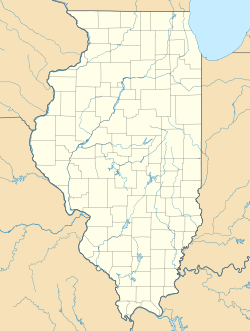Croft, Illinois facts for kids
Quick facts for kids
Croft, Illinois
|
|
|---|---|
| Country | United States |
| State | Illinois |
| County | Menard |
| Elevation | 604 ft (184 m) |
| Time zone | UTC-6 (Central (CST)) |
| • Summer (DST) | UTC-5 (CDT) |
| Area code(s) | 217 |
| GNIS feature ID | 422590 |
Croft is a small, quiet place in Menard County, Illinois, United States. It's known as an unincorporated community. This means it doesn't have its own local government like a city or town does.
Croft is located in the central part of Illinois. It sits south of a place called Middletown and west of another community named Broadwell.
Contents
Discovering Croft, Illinois
Croft might not be a big city, but every place has its own story! Learning about small communities like Croft helps us understand how different people live across the country.
What is an Unincorporated Community?
An unincorporated community is a group of homes or buildings that are not part of an official city or town. They don't have their own mayor or city council. Instead, they are usually governed by the county they are in.
- People living in unincorporated areas still get services like roads and police.
- These services are provided by the county government.
- Many small communities across the United States are unincorporated.
Where is Croft Located?
Croft is found in Menard County, which is in the state of Illinois. Illinois is in the Midwest region of the United States.
- The exact location of Croft is at about 40 degrees North latitude and 89 degrees West longitude.
- It's about 604 feet (184 meters) above sea level.
- People in Croft use the Central Time Zone, just like many other places in the Midwest.
Life in a Small Community
Living in a small, unincorporated community like Croft can be very different from living in a big city.
- These places often have a close-knit feel.
- Neighbors usually know each other well.
- Life can be quieter and more peaceful.
- Residents often travel to nearby towns for shopping or school.
Small communities are an important part of the fabric of the United States. They show the diversity of places where people choose to live.
 | Calvin Brent |
 | Walter T. Bailey |
 | Martha Cassell Thompson |
 | Alberta Jeannette Cassell |



